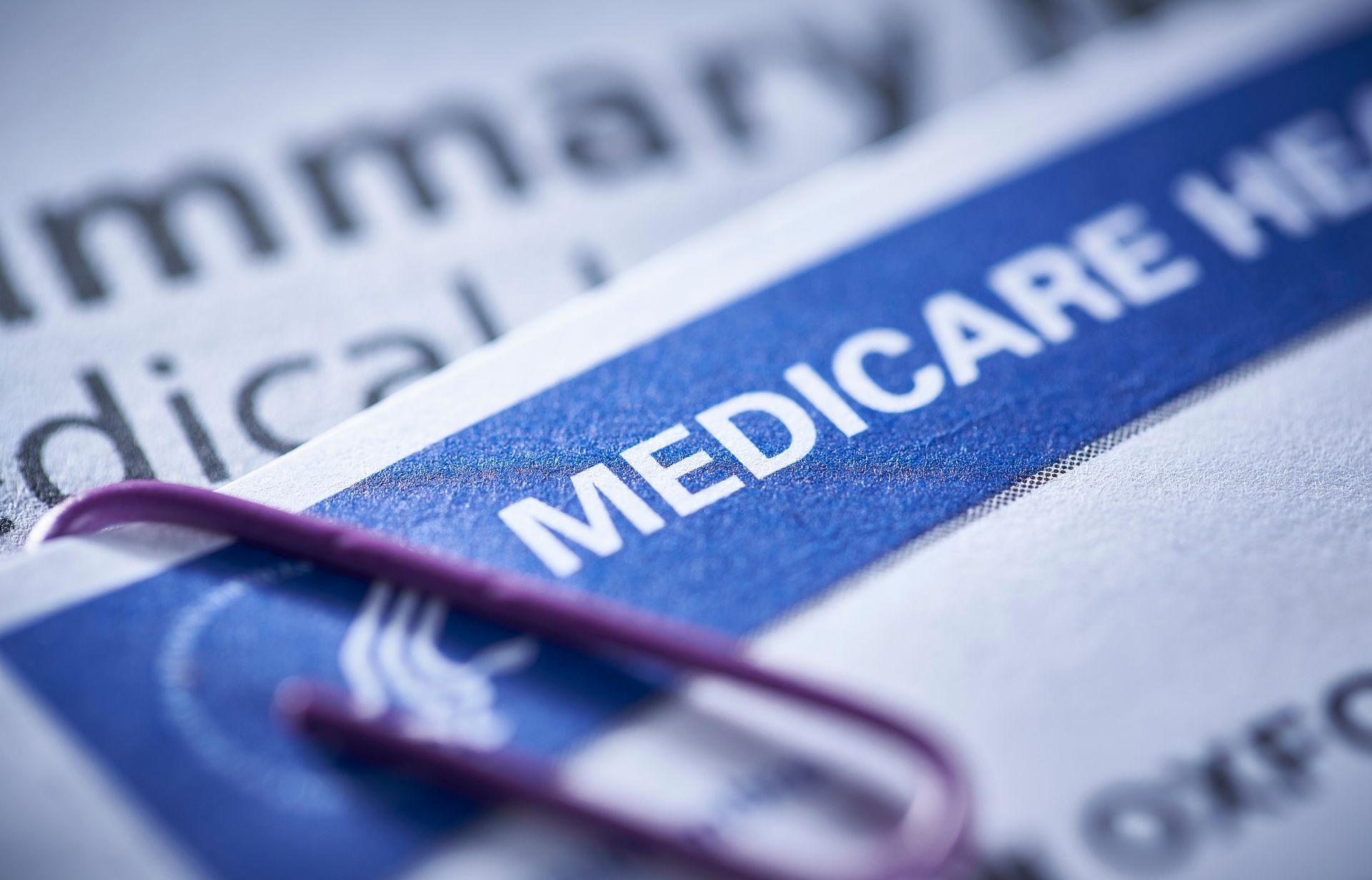What Project 2025's Potential Medicare Changes Mean for You
Key Takeaways:
- Project 2025, the conservative blueprint for reshaping the federal government, says Medicare Advantage should be the default option for Medicare.
- It also recommends repealing reforms made by the Inflation Reduction Act, such as caps on the price of insulin and out-of-pocket drug costs for Medicare members.
- President-elect Donald Trump said he hasn’t read the document but likes some ideas contained in it.
- The incoming administration could implement some changes recommended in Project 2025 right away, while others would require approval from Congress, and still others may not get administration buy-in.

Medicare is one of the most significant parts of federal government spending, so it is no surprise that Project 2025, a conservative blueprint for President-elect Donald Trump’s second term, proposes several changes to the federal health insurance program for seniors. These ideas aim to reduce the government’s roughly $850 billion annual spending on Medicare and find efficiencies through greater competition, privatization, and transparency. They would make Medicare Advantage the default option for enrollees, change how providers are paid, and end the government’s drug price negotiation program. (1)
Project 2025’s Goals for Medicare
Project 2025 was created by The Heritage Foundation, a long-established conservative think tank. It runs nearly 900 pages and contains proposals that would reform every aspect of the federal government, including Medicare. The section on the Department of Health and Human Services, which includes Medicare, was written by Roger Severino, who served under Trump as director of the department’s Office for Civil Rights.
The plan first lays out four goals for Medicare:
- Increase beneficiaries’ control of their health care
- Reduce regulatory burdens on doctors
- Ensure sustainability and value for beneficiaries and taxpayers
- Reduce waste, fraud, and abuse
How Project 2025 Would Change Medicare
Severino proposes a range of executive and legislative changes to achieve these goals. Here’s how they could affect consumers.
Make Medicare Advantage the Default Enrollment Option
The most significant proposal is for Medicare Advantage to be the default enrollment option. It’s already more popular than Original Medicare, with 54% of Medicare recipients enrolled in a Medicare Advantage plan. Enrollment in Medicare Advantage has more than doubled since 2010.2
But making it the default option would be complicated, requiring Congress to change the Social Security Act, said Rachel Schmidt, a research professor at Georgetown University’s McCourt School of Public Policy. That would require the government to determine how much the change would cost and how to implement it, a process that could take months or longer.
“There are lots of issues to consider, like whether people currently in traditional Medicare would be grandfathered in or allowed to stay, what to do if a beneficiary doesn’t pick an MA plan immediately and how to assign them to a plan, if or how beneficiaries could opt into traditional Medicare, whether people who enroll in a plan that doesn’t have their providers in-network have the options to change plans, etc.,” Schmidt said.
Project 2025 also proposes changing the way Medicare Advantage plans are paid. Currently insurance companies get paid based on a complex formula that takes into account quality ratings, the health of the patients the insurers cover, and other factors. But Severino wants it replaced with a competitive bidding model. Project 2025 doesn’t go into detail about this model, but in one proposal from researchers at the Leonard D. Schaeffer Center for Health Policy and Economics at the University of Southern California, the Centers for Medicare & Medicaid Services (CMS) would set standards for plan benefits, and companies would bid to provide them. The creators of the proposal say this would increase competition and lower costs for consumers.
Repeal the Inflation Reduction Act
Project 2025 calls for repealing the Inflation Reduction Act and the Medicare Shared Savings Program. The IRA made several changes to Medicare, including:
- Capping the cost of insulin at $35 a month
- Capping out-of-pocket prescription drug costs at $2,000 a year
- Allowing Medicare to negotiate with drug manufacturers over medicine prices3
Severino calls these policies “government price controls” that “limit access to medications and reduce patient access to new medication.”
However, it’s unclear how much support his ideas on drug price negotiations have with the new administration. The vast majority (85%) of Americans support allowing the government to negotiate the price of drugs for people on Medicare.4
And Robert F. Kennedy Jr., Trump’s nominee to lead the Department of Health and Human Services, has written that “legislators should cap drug prices so that companies can’t charge Americans substantially more than Europeans pay.”5
The Inflation Reduction Act also eliminated what used to be known as the “donut hole” or coverage gap of Medicare Part D, capping out-of-pocket prescription drug costs at $2,000 a year. Once you hit that cap, you enter the catastrophic tier of coverage. Because of the IRA, in 2025, Part D insurers will bear 60% of costs in the catastrophic phase, while drug manufacturers and Medicare each pay 20%.6
Project 2025 proposes that manufacturers bear more costs in the catastrophic drug coverage tier, which could save the government money.
Site-Neutral Payment
Currently, Medicare pays more for inpatient hospital procedures than those performed in doctor’s offices and other outpatient settings. Site-neutral payments would change this, giving the same money to outpatient providers as hospitals. That could save patients and Medicare money because hospitals are typically the most expensive place to receive health care.
Opponents say these reforms would hurt hospitals financially and force them to scale back services. “The hospital industry is obviously totally opposed to it,” said Gerard Anderson, a professor in the Bloomberg School of Health at Johns Hopkins.
‘Breakthrough’ Medical Devices
Project 2025 calls for the incoming administration to restore a rule known as Medicare Coverage of Innovative Technologies that was repealed by the Biden administration in 2021 before it came into force. That rule would have given Medicare beneficiaries faster access to “breakthrough” medical devices by allowing Medicare to cover them after the Food and Drug Administration approved them in an expedited program.
The Biden administration rolled back the policy in November 2021, saying that these devices might have unknown or unexpected risks.7
Because this is a federal rule and not a law, Trump could bring it back without input from Congress, though in most cases, the administration would have to give public notice and take comments on the proposal.
“If the Trump administration decides they want to pass it, based on his agency leadership nominations, I can’t think of anyone that would oppose him in a way that could have an effect on the outcome,” said Leila Sullivan, a research fellow for the Center on Health Insurance Reforms at the Georgetown University McCourt School of Public Policy.
Do you have a news tip for Investopedia reporters? Please email us at tips@investopedia.com
By MYLES MA
Myles is currently the senior insurance editor for Investopedia. He oversees the strategy and execution of all content aimed at helping people make better insurance decisions. Myles has nearly a decade of experience writing and editing insurance content at Policygenius, a leading insurance marketplace. His expertise has been featured in The Washington Post, CNBC, and PBS. Myles has a bachelor's degree from The College of New Jersey (TCNJ).
Learn about our editorial policies
Published December 11, 2024 09:21 AM EST
Article Sources:
Investopedia requires writers to use primary sources to support their work. These include white papers, government data, original reporting, and interviews with industry experts. We also reference original research from other reputable publishers where appropriate. You can learn more about the standards we follow in producing accurate, unbiased content in our editorial policy.
- The Heritage Foundation. “Project 2025.” Pages 462 to 466.
- KFF. “10 Reasons Why Medicare Advantage Enrollment is Growing and Why It Matters.”
- CMS. “Inflation Reduction Act and Medicare.”
- KFF. “Allowing Medicare to Negotiate Drug Prices Remains Broadly Popular Among Voters, Though Most Are Unaware of the Law and Its Projected Savings.”
- WSJ. “Trump Can Make America Healthy Again.”
- KFF. “Changes to Medicare Part D in 2024 and 2025 Under the Inflation Reduction Act and How Enrollees Will Benefit.”
- CMS. “CMS Repeals MCIT/R&N Rule; Will Consider Other Coverage Pathways to Enhance Access to Innovative Medical Devices.”





